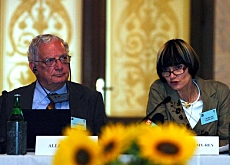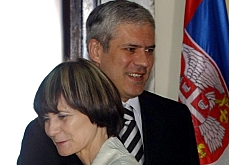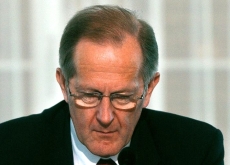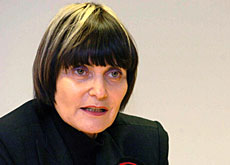No progress at Kosovo talks

Political leaders from the Balkans have failed to make progress during Swiss-hosted talks on the future of the Serbian province of Kosovo.
The high-ranking decision-makers came mainly from Serbia and Montenegro, including Kosovo, but also from Albania and Macedonia.
The sides failed to give ground at the weekend meeting in the city of Lucerne, according to Allen Kassof, the conference organiser.
He said Serbia’s neighbours, as well as the international community would have to continue to guarantee peace as long as the political status of the province remained unsolved.
A Swiss foreign ministry spokesman said the meeting at least provided an opportunity for an exchange of views.
The conference focussed on three issues: preparing the region for change, the conditions necessary to ensure security, as well as guaranteeing the peaceful co-existence between Albanians and Serbs in a democratic Kosovo.
Kosovo is a province which officially remains part of Serbia and Montenegro, the union that replaced Yugoslavia. But it has been under UN and Nato administration since Nato-led air strikes halted a Serb crackdown on ethnic Albanians in 1999.
High level
The event was jointly organised by the Swiss foreign ministry and the Project on Ethnic Relations (PER), a US-based organisation which has been promoting dialogue in southeastern Europe for ten years.
It was the fifth such high-level meeting that PER has organised, and the third in collaboration with the Swiss foreign ministry.
Previous meetings took place in April 2000 in Budapest, in December 2000 in Athens, and in November 2002 and May 2004 in Lucerne.
Diplomatic tension
Swiss-Serbian relations currently enjoy clear delineation.
Foreign Minister Calmy-Rey visited Belgrade in mid-June and told the Serbian president, Boris Tadic, that Kosovo could not return to its previous status within Serbia and Montenegro.
Tadic effectively told her to mind her own business.
And on May 27 the Swiss ambassador to the UN in New York, Peter Maurer, spoke of an “evolution towards a formal independence” for Kosovo at a Security Council meeting.
He said it was neither “desirable nor realistic” to imagine that the province would return to Serbian sovereignty.
His comments were criticised by some Swiss politicians as well as the government in Belgrade.
Earlier this year Tadic declared he would “never accept” an independent Kosovo. He said he would do everything in his power to prevent secession.
swissinfo with agencies
In spring 1999, Nato launched 78-day bombing raids against Serbia to force President Slobodan Milosevic’s troops out of Kosovo.
In May 1999, 800,000 Albanians fled to neighbouring countries.
170,000 were accepted as refugees around the world.
580,000 were later displaced internally in Kosovo.
130,000 were able to stay at home.
1.6 million people have been forced to leave their home since the beginning of the Kosovo conflict.
Political leaders from the Balkans gathered in Lucerne at the weekend to discuss the future of Kosovo.
Switzerland has been a major place of emigration for Kosovo Albanians for a long time.
Many came to Switzerland as seasonal workers well before war broke out in the province.
Others came as refugees after the conflict began, often joining relatives who already lived in Switzerland.

In compliance with the JTI standards
More: SWI swissinfo.ch certified by the Journalism Trust Initiative



You can find an overview of ongoing debates with our journalists here. Please join us!
If you want to start a conversation about a topic raised in this article or want to report factual errors, email us at english@swissinfo.ch.